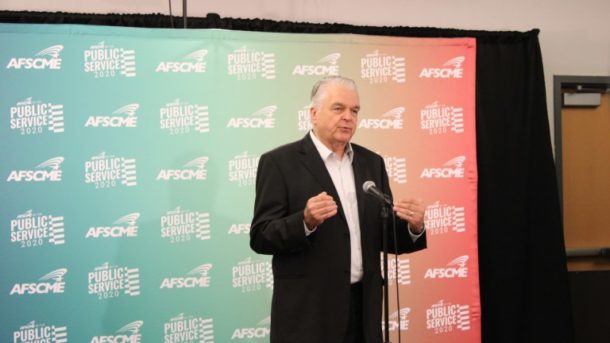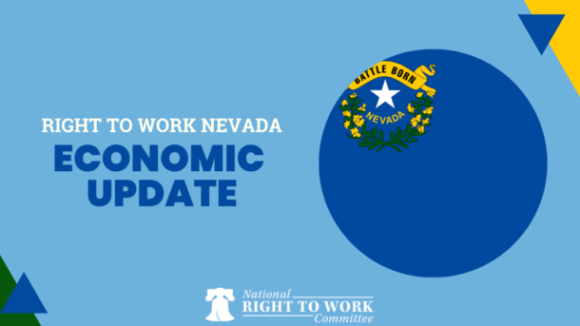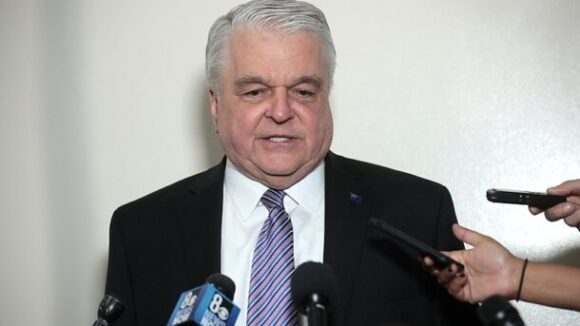Major Investments Happening in Right to Work Nevada
Companies investing in Right to Work Nevada include American Battery Technology Company, Tesla, and Foot Locker.

In recent weeks, tax revenues have plummeted across the country because elected officials ordered businesses to shut down.
The immediate fiscal crisis vividly exposes the damage done to taxpayers, civil servants, and citizens who rely on government services like schools and public-safety departments by underfunded and, more specifically, inefficient government pension systems.
Big Labor-backed politicians in many states have for many years failed to put taxpayer-funded pensions on a sustainable path, hurting government workers and people from other walks of life. And union bosses endowed with monopoly-bargaining privileges continue to be the main roadblock to public-pension reform.
Government-authorized monopoly bargaining empowers a union’s officers to speak for EVERY front-line employee in a workplace or other “bargaining unit” regarding his or her pay, benefits and work rules. This monopoly power eliminates employees’ freedom to deal with their employer directly on these important issues.
America’s over half-a-century experience with government union monopoly bargaining confirms what common sense alone should tell us: In addition to undermining employers’ ability to manage employees efficiently and effectively, it greatly enhances Big Labor’s political clout, by insulating government union bosses from accountability to taxpayers, while usurping the voice of employees.
All the while, union bosses have pushed and pushed politicians to promise hefty pension benefits for civil servants while underfunding them. Even today, as the burden of these pensions on taxpayers and public employees who leave government careers early grows heavier and heavier, Big Labor fights ferociously against reasonable pension reform. States’ monopoly-bargaining laws steeply tilt the legislative playing field, favoring union bosses and their pie-in-the-sky “promises” to workers whenever battles occur.
Nevada is a case in point. It is one of many states where rank-and-file civil servants are now being forced to pay the price for years of failure by union-label and union boss-intimidated lawmakers to make public employee pensions sustainable.
Even in good times, “the cost to keep the Nevada Public Employees Retirement System [PERS] afloat imposed a tremendous burden on taxpayers and government workers, who were constantly being forced to pay more while getting nothing back in return, ” explained Robert Fellner, vice president of the Las Vegas-based Nevada Policy Research Institute in an op-ed for the Las Vegas Review-Journal.
“Today,” continued Feller, “the PERS contribution rate for most public employees is at an all-time high” of 29.25% — up 36% from 2009.
“This means that every $100 in salary paid to a teacher or other public employee now requires an additional $29.25 contribution to PERS, with taxpayers and employees splitting the cost. . . .
“In total, taxpayers and public workers will send $2.2 billion to PERS this year — or more than triple the $700 million in budget cuts that the state is preparing to implement as a result of the economic fallout from the coronavirus.”
Were these extraordinary burdens suddenly to become substantially lighter, the sharp cuts in salaries and wages and major layoffs that the state of Nevada and its localities are now imposing almost certainly wouldn’t be necessary even under the current coronavirus conditions.
To be in a better position to deal with future economic shocks, states like Nevada must reform their pension systems, making them more efficient, less costly, and more equitable for public employees with diverse government career spans and hire dates.
Such reforms are rarely easy, and experience shows reforms are almost impossible to achieve in states with union bosses who wield widespread monopoly-bargaining control over government employees. Unfortunately for Nevadans, their state is moving in the wrong direction.
Just last year, Democrat Gov. Steve Sisolak signed legislation granting government union bosses who already enjoyed “exclusive” representation control over teachers police officers, firefighters, and other local employees, essentially the same power over an additional 20,000 public employees.
As costly as special privileges for union bosses are to taxpayers, government employees themselves are also victimized.
If you have questions about whether union officials are violating your rights, contact the Foundation for free help. To take action by supporting The National Right to Work Committee and fueling the fight against Forced Unionism, click here to donate now.

Companies investing in Right to Work Nevada include American Battery Technology Company, Tesla, and Foot Locker.

“Taxpayers” are “getting ripped off.” But the National Right to Work Committee and its nearly 18,000 Nevada members will be fighting back in 2022.

Las Vegas police officer Melodie DePierro has filed response briefs in her case seeking to vindicate her First Amendment right to abstain from union membership and financial support.